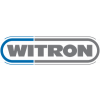BeGlobal is committed to your career growth. We provide opportunities for skill development and offer support throughout your career journey.
We offer a competitive salary and benefits package, along with opportunities for career progression. Work in an exciting and fast-paced industrial setting, where your skills and contributions will directly impact project success.
As part of BeGlobal, you’ll receive personalized support from our team, ensuring you have the resources you need for success, from job placement to continuous development.
Job description :
Title : Marine Engine Technician
Location : Ontario
Required hours : 5,000 hours per year of Full time employment
Overview :
A Marine Engine Technician is a specialized mechanic responsible for the maintenance, repair, and overhaul of marine engines and propulsion systems used in boats, ships, yachts, and other watercraft.
This role requires a deep understanding of marine engines, electrical systems, and mechanical components to ensure that vessels operate safely and efficiently.
Marine Engine Technicians work in various environments, including boatyards, marinas, repair shops, and onboard vessels.
Key Responsibilities :
Engine Maintenance & Repair :
Perform regular maintenance on marine engines, including oil changes, filter replacements, and coolant system checks.
Inspect, diagnose, and repair a variety of engine problems, including issues with fuel systems, exhaust systems, propulsion, and ignition.
Repair and replace damaged components such as pistons, gaskets, belts, and alternators.
Overhaul and rebuild marine engines when necessary, ensuring all systems are functioning properly.
Electrical & Electronic Systems :
Maintain and troubleshoot electrical systems, including battery, charging systems, and ignition.
Diagnose and repair electrical faults such as short circuits, blown fuses, or faulty wiring.
Install and maintain marine electronics like GPS, radar, depth finders, and communication systems.
Ensure proper functioning of onboard electrical systems, including lighting, navigation, and safety equipment.
Propulsion Systems & Drive Trains :
Inspect, service, and repair marine propulsion systems, including inboard and outboard motors, stern drives, and transmissions.
Diagnose and repair issues related to propellers, shafts, bearings, and the gearbox.
Ensure that the drive systems are properly lubricated and that all components are operating smoothly.
Fuel Systems & Fuel Efficiency :
Inspect and repair fuel systems, including fuel pumps, injectors, and carburetors, to ensure optimal fuel efficiency and performance.
Clean and replace fuel filters and ensure the proper functioning of fuel tanks and fuel lines.
Troubleshoot issues related to fuel delivery and combustion systems.
Cooling Systems :
Maintain and repair the engine cooling systems, including heat exchangers, raw water pumps, and cooling hoses.
Ensure that the cooling system is working efficiently to prevent engine overheating, particularly in high-performance environments.
Diagnostics & Troubleshooting :
Use diagnostic tools and equipment (e.g., multimeters, engine analyzers, compression testers) to detect engine faults and performance issues.
Perform systematic troubleshooting to identify the root cause of mechanical, electrical, and hydraulic issues.
Provide solutions to repair or replace malfunctioning parts, and perform necessary adjustments for proper operation.
Pre-Season Inspections & Winterization :
Conduct thorough pre-season inspections on engines and equipment to ensure readiness for use.
Perform winterization procedures, including draining fuel systems, flushing cooling systems, and protecting engines from freezing temperatures.
Onboard Repairs & Service :
Perform repairs and service on vessels, both in the shop and on-site, in cases where boats are docked at marinas or on the water.
Travel to vessels in remote locations to perform emergency repairs, often requiring troubleshooting with limited tools and resources.
Work in close collaboration with boat owners or operators to schedule maintenance or urgent repairs.
Documentation & Record Keeping :
Maintain detailed records of all repairs, maintenance work, and parts replaced on each vessel or engine.
Document work completed, including labor hours, materials used, and any diagnostic results or repairs made.
Provide recommendations to customers regarding future maintenance or upgrades.
Customer Service & Communication :
Communicate with boat owners about the condition of their engines, needed repairs, and maintenance schedules.
Explain complex technical issues in simple terms, providing cost estimates and timeframes for repairs.
Offer advice on proper care and maintenance to extend the lifespan and performance of the vessel’s engine.
Skills and Qualifications :
Education : High school diploma or equivalent. Vocational training or an apprenticeship in marine mechanics or a related field is preferred.
Certifications such as from the National Marine Manufacturers Association (NMMA) or Marine Engine Technicians certification are beneficial.
Experience : Several years of hands-on experience in marine engine repair and maintenance, including work with both inboard and outboard motors, and experience with various boat and engine brands.
Technical Skills :
Strong knowledge of marine engine systems, including both mechanical and electrical systems.
Proficiency with diagnostic tools and equipment to troubleshoot engine and electrical issues.
Expertise in marine propulsion systems, fuel and cooling systems, and hydraulics.
Familiarity with marine electronics, including navigational and communication systems.
Problem Solving : Excellent troubleshooting abilities to diagnose and resolve complex issues with marine engines and systems.
Attention to Detail : Strong focus on ensuring high-quality repairs and maintenance to prevent future failures.
Physical Dexterity : Ability to work in tight spaces on vessels and lift heavy engine components when necessary.
Customer Service : Excellent communication skills for interacting with customers and explaining technical issues clearly and professionally.
Safety Consciousness : Knowledge of and adherence to safety standards when working with tools, fuel systems, chemicals, and electrical systems.
Working Conditions :
Environment : Marine Engine Technicians typically work in boatyards, marinas, repair shops, and onboard vessels. The work can be performed outdoors in varying weather conditions, as well as in confined spaces within boats or ships.
Physical Demands : The job requires the ability to lift heavy components, work in confined spaces, bend, kneel, and stand for extended periods.
Marine Engine Technicians often work in awkward positions, particularly when performing on-site repairs aboard vessels.
Work Hours : Full-time positions, with potential for evening, weekend, or holiday work, especially during peak boating seasons.
Emergency repairs may require work outside regular business hours.
Safety : Technicians must adhere to safety regulations and use protective equipment such as gloves, goggles, and respirators when working with chemicals, fuels, and welding equipment.









